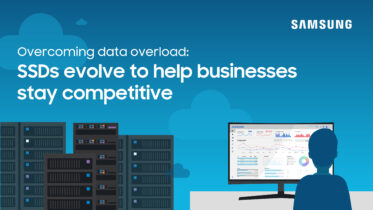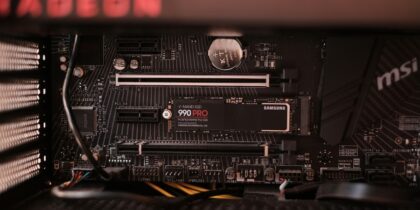The core responsibilities of public sector agencies seem to grow by the year, with the health and well-being of the populace atop the list. Nearly every agency’s duties and decision-making processes are increasingly data-driven, however, so the secure collection and transmission of information across diverse areas such as financial services, security, public safety and education are paramount.
It’s not just federal government agencies, either. Local and state governments are also transforming their work processes, moving this critical information from paper-based to digital, requiring secure data transfer methods. The boom in digitization is creating a huge jump in demand for big data products and services, according to industry analysts at Deltek1, who forecast the federal market alone will grow from $8 billion in 2023 to $11.2 billion in 2027 — a 40% increase over the next five years.
This digital transformation creates the need for reliable storage solutions that can enable secure data transfer methods, data encryption, long-term data storage with SSDs and data sharing and archiving. For example, the White House stated in its Information Technology Operating Plan2 that it was investing government funds in four key areas: Cybersecurity, IT modernization, digital-first customer experiences and data as a strategic asset. The goal is to harness the data and gain insights to make better decisions that result in improved government operations and citizen experiences, the White House report said.
None of this can happen without storage that can securely store data and both encrypt and erase it completely when needed. Solid state drives (SSDs) check all of the above boxes while providing lower power consumption, faster boot and transfer times and larger capacity potential than traditional hard disk drives (HDD). In addition, SSDs can be used in data centers, on the road or in field offices.
Keeping government data safe
Security is arguably the most important aspect of any organization’s data strategy, but the stakes are even higher for the government, given the extensive amount of personally identifiable information that’s created and stored across agencies. Domestic and international bad actors see these data repositories as what they are: treasure troves of Social Security numbers, demographic information and other records that can be captured and either used or sold on the dark web. They are often successful in obtaining them, too. Verizon’s 2023 Data Breach Investigations Report3 says that 11% of all data breaches and 20% of all security incidents were in the public sector.
Get your complete guide to SSD management
Discover how to effectively adopt and manage SSDs in your organization with this ultimate guide. Download Now
Samsung SSDs help agencies protect data because the encryption is hardware-based. This means the encryption keys are built into the drive controller rather than its system memory. In addition, Samsung SSDs are self-encrypting, so data is automatically protected, and there’s no chance of a user forgetting to manually encrypt data.
For example, the super-fast Samsung 990 PRO — a PCIe® 4.0 NVMe® SSD for PCs — supports AES 256-bit, hardware-based, full-disk encryption, which is the strongest encryption algorithm available today and more secure than software-based encryption. HDDs use software-based encryption, which executes encryption using the server’s central processing unit.
The other side of the drive
Just as important as storing and encrypting big data in the public sector is ensuring the proper disposal of that information when it’s no longer needed. Securely erasing an SSD works differently than a traditional spinning platter-based hard drive.
Effectively wiping Samsung SSDs comes easily, thanks to Samsung Magician software with secure erase and data security. These features help users maximize the performance and lifetime of their SSDs. When it comes to sensitive information within the public sector, properly disposing of unnecessary data should be as big a consideration as how to store it during the technology-buying process.
Discover more trends in storage that are transforming the public sector. Also, explore some of the most popular Samsung solutions to level up storage and performance.
1 Deltek. “New Deltek Report: Federal Big Data Market, 2023-2027.” October 27, 2023.
2 White House. “Information Technology Operating Plan.” June 2022.
3 Verizon. “2023 Data Breach Investigations Report DBIR” March 6, 2024.








